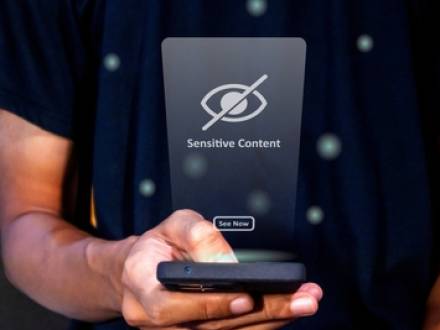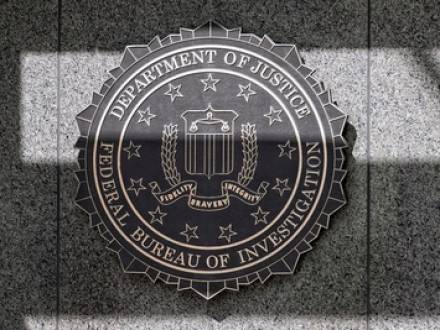TELEPHONES ANSWERED 24 HOURS A DAY
Recent Blog Posts
Defending Against Charges of Aiding and Abetting a Federal Crime
 Helping someone commit a federal crime, such as immigration fraud or a hate crime, can result in penalties as severe as if you had directly committed the crime yourself. The prosecution has to prove that you intentionally attempted to assist in carrying out the crime successfully. A Chicago, IL federal crimes defense attorney may be able to help you build a strong claim against aiding and abetting charges or work out an appropriate plea bargain based on the details of your case.
Helping someone commit a federal crime, such as immigration fraud or a hate crime, can result in penalties as severe as if you had directly committed the crime yourself. The prosecution has to prove that you intentionally attempted to assist in carrying out the crime successfully. A Chicago, IL federal crimes defense attorney may be able to help you build a strong claim against aiding and abetting charges or work out an appropriate plea bargain based on the details of your case.
Aiding and Abetting Charges Under Federal Law
Aiding and abetting is broadly defined. It can refer to playing a role in planning the crime, providing items needed to commit the crime, helping the main offender evade capture, or encouraging the offender to commit the crime. Under federal law, the conditions needed to convict someone of aiding and abetting include:
Can You Be Federally Prosecuted for Buying Drugs With Cryptocurrency?
 Facing a federal drug charge is already daunting. When you factor in cryptocurrency, the need to build a strong defense becomes even more relevant. These cases sometimes extend beyond the national border and require a well-versed understanding of the laws that apply. An Illinois federal drug crimes defense attorney may be able to help you better understand the laws governing your case and what you need to do to fight charges against you.
Facing a federal drug charge is already daunting. When you factor in cryptocurrency, the need to build a strong defense becomes even more relevant. These cases sometimes extend beyond the national border and require a well-versed understanding of the laws that apply. An Illinois federal drug crimes defense attorney may be able to help you better understand the laws governing your case and what you need to do to fight charges against you.
Is Buying Drugs With Cryptocurrency a Federal Crime?
Several types of drug offenses fall under the umbrella of federal crime, and manufacturing and trafficking are the most common federal drug charges connected to the exchange of cryptocurrency. Any time those crimes cross state lines, they fall under federal jurisdiction. When it comes to drug trafficking across state or national borders, anyone knowingly or intentionally manufacturing, distributing, or dispensing drugs is breaking federal law regardless of the financial transaction method used.
Do I Have to Register as a Sex Offender for a Voyeurism Conviction?
 Voyeurism is a serious offense in Illinois, but not every conviction results in sex offender registration. The impact of a conviction depends on the details of the case, the charges filed, and how a judge decides to handle sentencing.
Voyeurism is a serious offense in Illinois, but not every conviction results in sex offender registration. The impact of a conviction depends on the details of the case, the charges filed, and how a judge decides to handle sentencing.
If you are facing a voyeurism charge, it is essential to understand the potential consequences, including whether you could be required to register as a sex offender. A strong legal defense from an Illinois sex crimes defense lawyer may help you avoid this outcome and protect your future.
When Can You Be Charged with Voyeurism in Illinois?
Illinois’ voyeurism law makes it illegal to secretly view, record, or photograph another person in a private setting without their consent. The law is meant to protect people in places where they expect privacy, such as bedrooms, bathrooms, changing rooms, and locker rooms.
How Does the Miller Test Handle Loliporn?
 Many people worry about whether owning, sharing, or creating certain types of animated sexual content could get them into legal trouble. One area of concern is loliporn, a type of animation that depicts minors in sexual situations. Even though this content is not created using real children, it can still lead to criminal charges of child pornography under federal law.
Many people worry about whether owning, sharing, or creating certain types of animated sexual content could get them into legal trouble. One area of concern is loliporn, a type of animation that depicts minors in sexual situations. Even though this content is not created using real children, it can still lead to criminal charges of child pornography under federal law.
If you are being investigated or have been charged with a crime related to loliporn, you need to understand how the law applies to your case. The Miller test is one of the legal standards used to decide if certain types of content are illegal under obscenity laws. If you are facing federal charges, speaking with our experienced Illinois federal criminal defense attorney as soon as possible is critical.
What Happens at an Arraignment in Illinois?

One of the first court hearings after an arrest in Illinois is an arraignment. If you or a loved one is facing an arraignment, it is natural to feel confused or anxious. You may be wondering what will happen in court, what your rights are, and what to expect afterward.
An arraignment is more than just a procedural formality; it is a defendant’s first chance to hear the charges, talk about bail, and enter a plea. What happens at this hearing can shape the rest of your case. Understanding your rights and having an experienced Illinois federal criminal defense attorney by your side can make all the difference in the outcome of your case.
When Does an Arraignment Happen?
After an arrest, a defendant must be brought before a judge without unnecessary delay. This is usually within 48 hours, not counting weekends or holidays. However, if the arrest was made on a warrant, the timeline may vary.
Are You Being Watched? How Federal Drug Investigations Work
 If you are involved in a federal drug case — or even suspect you are under investigation — you may wonder how federal drug investigations work. Are you being watched by the DEA or FBI? How do these agencies build a case? We have previously discussed what to do if you are a person of interest in a federal investigation, but drug cases are in a league of their own.
If you are involved in a federal drug case — or even suspect you are under investigation — you may wonder how federal drug investigations work. Are you being watched by the DEA or FBI? How do these agencies build a case? We have previously discussed what to do if you are a person of interest in a federal investigation, but drug cases are in a league of their own.
Federal drug investigations are far more sophisticated and thorough than typical state-level cases. The government uses wiretaps, surveillance, undercover informants, and even social media monitoring to gather evidence. If you believe you are being investigated, it is crucial to consult an experienced Chicago, IL federal drug defense lawyer as early as possible to protect your rights.
What Happens if You Threaten a Judge in Court?
 Threatening a judge in court is a serious crime, and in many cases, it is a federal crime. Whether the threat is made in person, in writing, or on the internet, the consequences can be severe. This is true even if the person making the threat just lost control and had an angry outburst in court – even if that person truly did not really mean the threat.
Threatening a judge in court is a serious crime, and in many cases, it is a federal crime. Whether the threat is made in person, in writing, or on the internet, the consequences can be severe. This is true even if the person making the threat just lost control and had an angry outburst in court – even if that person truly did not really mean the threat.
Federal law protects judges, prosecutors, and other government officials from threats, intimidation, and retaliation. If you are facing federal charges for threatening a judge, talk to a Chicago, IL federal criminal defense attorney as soon as possible.
Are There Federal Laws Against Threatening a Judge?
It is a federal crime to threaten a federal judge, prosecutor, police officer, and certain other government employees. The law makes it illegal to threaten, assault, or harm these officials in an attempt to interfere with their duties or in an effort to retaliate against them.
What to Do if You Are a Person of Interest in a Federal Investigation
 Being named a "person of interest" in a federal criminal investigation can feel like serious business, and it is. If federal agents or prosecutors have contacted you, it is crucial to understand what you might be up against. Federal investigations are complex, and even if you believe you have done nothing wrong, speaking to authorities without a lawyer can put you at risk. An Illinois federal criminal defense attorney with experience in white-collar cases can protect your rights and help you figure out what to do next.
Being named a "person of interest" in a federal criminal investigation can feel like serious business, and it is. If federal agents or prosecutors have contacted you, it is crucial to understand what you might be up against. Federal investigations are complex, and even if you believe you have done nothing wrong, speaking to authorities without a lawyer can put you at risk. An Illinois federal criminal defense attorney with experience in white-collar cases can protect your rights and help you figure out what to do next.
What Does It Mean to Be a Person of Interest?
A "person of interest" is someone federal law enforcement believes may have information about a crime and is often used to draw the public’s attention to someone without formally accusing them of committing the crime. While this term does not mean someone is a suspect, it does suggest that investigators are watching that person closely. In many cases, a person of interest may later become a suspect, especially if law enforcement uncovers evidence linking them to illegal activity.
Statutory Rape: Illinois Age of Consent

Most of us had Shakespeare’s Romeo and Juliet on our reading list in high school. The storyline is about two children who fall in love. Their families are bitter enemies, creating a forbidden love scenario, and the two turn to drastic measures to be together. Unfortunately, severe miscommunication leads both characters’ storylines to end in tragic demise.
How does this have anything to do with statutory rape laws in Illinois? "Romeo and Juliet" laws are named after these two iconic teens and determine if sexual intercourse between two consenting individuals is legal or illegal. If you have been accused of statutory rape, understand that you could face severe consequences, both under federal and state law. Call an Illinois criminal defense attorney now.
What Exactly is Statutory Rape?
Statutory rape is the term commonly used to describe illegal behavior that varies from forcible rape and other forms of coerced intercourse to behavior that would otherwise be legal if both parties were old enough to consent. Usually, it is used in the context of older adults having sexual relationships with minors, and although every state criminalizes this behavior, most states do not use the term "statutory rape."
Could Voyeurism Be Charged as a Federal Crime?
 Voyeurism, the act of secretly watching or recording someone without their consent for personal gratification, is commonly prosecuted at the state level. However, there are circumstances where voyeurism could escalate into a federal crime. When this happens, the stakes become significantly higher, with more severe penalties and lifelong consequences. An experienced Chicago, IL federal criminal defense attorney can help if you are facing federal voyeurism charges.
Voyeurism, the act of secretly watching or recording someone without their consent for personal gratification, is commonly prosecuted at the state level. However, there are circumstances where voyeurism could escalate into a federal crime. When this happens, the stakes become significantly higher, with more severe penalties and lifelong consequences. An experienced Chicago, IL federal criminal defense attorney can help if you are facing federal voyeurism charges.
When Does Voyeurism Become a Federal Crime?
Voyeurism can be prosecuted as a federal offense under certain conditions. Federal law applies if the crime involves interstate or international activity, such as transmitting images or videos across state lines or using the internet to distribute recordings.




